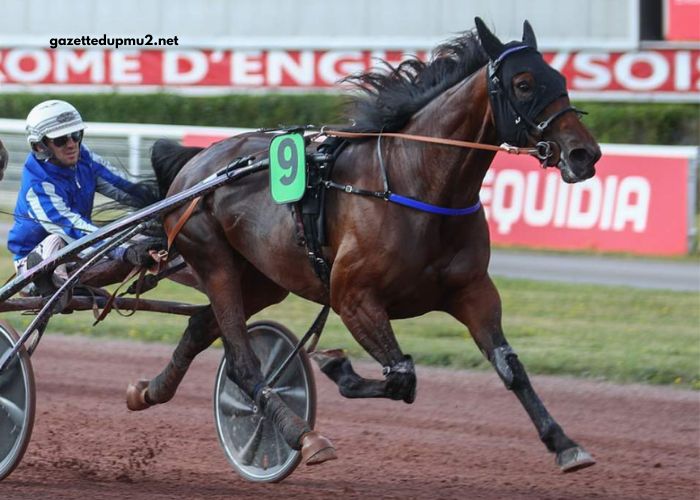In the glittering world of entertainment, where fame and glamour often take center stage, there exists a realm hidden from the spotlight’s blinding glow. This is a world of untold stories, backstage struggles, and behind-the-scenes triumphs. While audiences marvel at the final product on screen, stage, or in the recording studio, there is a complex tapestry of narratives and experiences woven behind the curtain. This article delves deep into the fascinating and sometimes heart-wrenching tales that are often overshadowed by the dazzling spectacle of showbiz.
The Casting Couch Chronicles
The #MeToo movement exposed the dark underbelly of Hollywood and the entertainment industry at large. One of the most harrowing aspects that came to light was the prevalence of the casting couch culture. For decades, aspiring actors, particularly women, faced coercion and exploitation in their quest for stardom.
While the casting couch is often associated with Hollywood, it’s not limited to one geographic location or medium. Instances of casting couch exploitation have been reported in the theater, television, and even the music industry. It’s a distressing reality where power dynamics tilt in favor of the influential and the vulnerable are left with limited options.
The stories of those who have endured the casting couch are often muffled, their dreams sacrificed at the altar of exploitation. But, in recent years, courageous individuals have come forward to shed light on this pervasive issue. Their accounts have ignited a global conversation about consent, abuse of power, and the urgent need for change within the entertainment world.
Mental Health Behind the Scenes
From the outside, it may seem like a dream job to be in the entertainment industry. The fame, fortune, and adulation from fans can create the illusion of a perfect life. However, the reality often contradicts this image.
Behind the spotlight, many entertainment professionals grapple with mental health issues. The pressure to perform, the constant scrutiny, and the often unpredictable nature of the industry can take a toll on even the most resilient individuals.
Artists, in particular, are known to be vulnerable to mental health challenges. The intense emotional demands of their craft, combined with the instability of a career in the arts, can lead to depression, anxiety, and substance abuse issues. While some celebrities have been open about their struggles, such as Demi Lovato and Kid Cudi, countless others suffer in silence, fearing the stigma associated with mental health problems.
The entertainment industry is slowly recognizing the importance of mental health support for its members. Organizations like “Music Minds Matter” in the UK and initiatives like “Actors’ Equity’s Mental Health Resources” in the theater world are providing resources and assistance to those who need it most. However, much work remains to be done to break the stigma and ensure that everyone behind the scenes has access to the mental health support they need.
The High Price of Stardom
Stardom in the entertainment industry often comes at a high price. While the glitz and glamour of being a household name are alluring, the sacrifices required are substantial.
One of the most significant sacrifices is privacy. Celebrities, from actors to musicians, often find themselves under constant scrutiny. Every aspect of their lives, from their relationships to their daily routines, is dissected by the media and the public. This lack of privacy can lead to a sense of isolation and a feeling of being perpetually exposed.
Moreover, the demands of fame can strain personal relationships. Maintaining a stable family life or nurturing deep friendships can be challenging when one’s schedule is filled with appearances, shoots, and tours. The toll on personal relationships is evident in the high rate of celebrity divorces and strained family dynamics.
Financial pressures are also a hidden aspect of stardom. While it may seem like celebrities are rolling in money, the reality can be different. Many entertainers, especially those early in their careers, struggle to make ends meet. The cost of pursuing their dreams, including acting classes, demo recordings, and auditions, can be exorbitant. And even successful artists often have to deal with financial pressures, such as managing large incomes, paying agents and managers, and navigating the complexities of taxes.
The Weight of Expectations
Entertainment industry professionals often grapple with the weight of public expectations. Whether it’s a beloved actor reprising an iconic role or a musician following up a chart-topping album, the pressure to meet or exceed previous successes can be immense.
For actors, typecasting is a double-edged sword. While it means that they are excellent at a particular type of role, it can also limit their opportunities. Breaking free from the mold can be a daunting task. For instance, Sir Ian McKellen, celebrated for his portrayal of Gandalf in “The Lord of the Rings,” faced challenges in being recognized for his versatility as an actor beyond the fantasy genre.
Similarly, musicians who achieve massive success with a particular sound or style may find it difficult to evolve or experiment with new genres. The fear of disappointing fans or alienating their core audience can be paralyzing.
Moreover, the ever-evolving tastes of the public and critics add to the pressure. What’s popular today may not be in a year’s time, and staying relevant in the fast-paced entertainment world is a constant struggle. This pressure can lead to stress, anxiety, and a fear of artistic stagnation.
The Unsung Heroes: Crew and Technicians
While actors, musicians, and directors receive most of the public attention, the entertainment industry is powered by an army of unsung heroes. These are the crew members and technicians who work tirelessly behind the scenes to bring the magic to life.
In film and television, the grip, gaffer, set designers, and costume and makeup artists are just a few of the essential roles that often go unnoticed. These individuals work long hours in challenging conditions to ensure that the production runs smoothly and looks spectacular on screen.
In the music industry, producers, sound engineers, and session musicians play a critical role in shaping the final product. They work tirelessly in recording studios, often spending countless hours perfecting a single track.
Theater productions rely heavily on stagehands, lighting technicians, and sound engineers. These individuals work in the shadows to create the seamless and immersive experiences that captivate audiences night after night.
Despite their crucial contributions, the crew and technicians are rarely in the limelight. Their stories of dedication, creativity, and the challenges they face deserve recognition and respect.
The Dark Side of Fandom
Fandom is a powerful force in the entertainment world. Fans can be incredibly passionate and devoted to their favorite artists, actors, or franchises. However, there is a dark side to fandom that often goes unexamined.
Obsessive fans, often referred to as “stalkers,” can pose a serious threat to the safety and privacy of celebrities. While most fans are harmless enthusiasts, a small but significant number can become fixated to the point of dangerous behavior. This can include stalking, harassment, and even physical violence.
The internet has amplified the reach of fandom, allowing fans to connect with their idols more easily than ever before. While this has led to positive interactions and opportunities for fan engagement, it has also enabled toxic behavior, such as online harassment and cyberbullying.
Celebrities are often forced to take extreme measures to protect themselves and their families from overzealous fans. This can include increased security, legal restraining orders, and even relocating to undisclosed locations.





